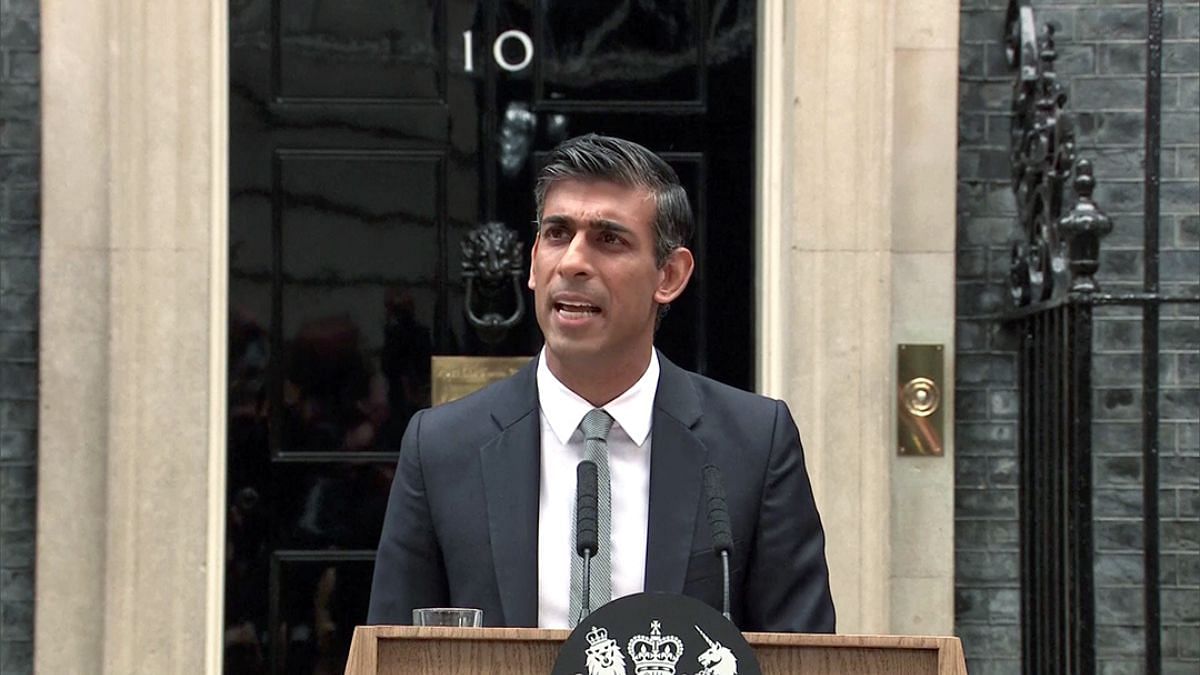New Delhi: The UK has introduced new student visa rules that prevent international students from bringing their parents, partners or children with them starting 1 January, unless they are pursuing a PhD or postgraduate research courses.
Under the dependent visa, international students, barring undergraduates, could bring their family members, including spouses and children, to the UK. The new restrictions will impact international students at the postgraduate level and in non-research courses.
The UK has been a favoured destination for Indian students seeking higher education abroad, shows Bureau of Immigration data. In 2022, around 55,000 Indian students were studying in the UK, according to Indian foreign ministry statistics.
UK Home Office data showed that 1,42,848 sponsored study visas were issued to Indians in the year ending June 2023 — a 54 percent rise from the year ending June 2022.
Of the 5,00,000 sponsored UK study-related visas issued in June 2023, almost 1,54,000 were granted to students’ dependents. Indians accounted for almost a third of sponsored UK study visas during this time, according to the UK Home Office.
The new rules also require that those pursuing PhDs must have studied for at least 24 months before switching to a work visa, such as a skilled worker visa. Students must also finish their education and have a job start date before switching to their work visas.
The Rishi Sunak government will also review the graduate visa provision, which lets students stay in the UK for at least two years after completing a course, to prevent “abuse” of the system, according to a BBC report.
These measures are part of the British government’s overhaul of its immigration laws — one of Sunak’s main goals as prime minister to “stop the boats”.
Also Read: UK sees Hindu voters as easy, low-maintenance. That’s why caste is still in Equality Act
Visa rules for workers
The UK government has also prohibited overseas social care and health workers from bringing their partners or children with them to the country. Many feel that such measures will discourage workers from coming to the country, aggravating staff shortages.
The government also raised the minimum income needed for British citizens to bring a foreign family member or partner to live with them, to £38,700 from £18,600 a year.
Last year, net migration — the difference between the number of people coming to live in the UK and those leaving — hit a record 7,45,000 from 1,84,000 in 2019 before the pandemic, according to the Migration Observatory at the University of Oxford.
On Tuesday, Sunak announced that the backlog of older asylum claims to the country had been cleared, with a lower grant rate than last year.
I said that this government would clear the backlog of asylum decisions by the end of 2023.
That’s exactly what we’ve done.
Over 112,000 cases are now cleared with a lower grant rate than last year, a key part of our plan to stop the boats.
— Rishi Sunak (@RishiSunak) January 2, 2024
However, media reports suggest that the total asylum backlog now stands at 99,000. Home Secretary James Cleverly reportedly conceded that the Home Office was still dealing with 4,500 “complex” cases, some involving security concerns.
(Edited by Richa Mishra)
Also Read: UK engaging with an assertive new Indian community—but it must watch out for negative groups

